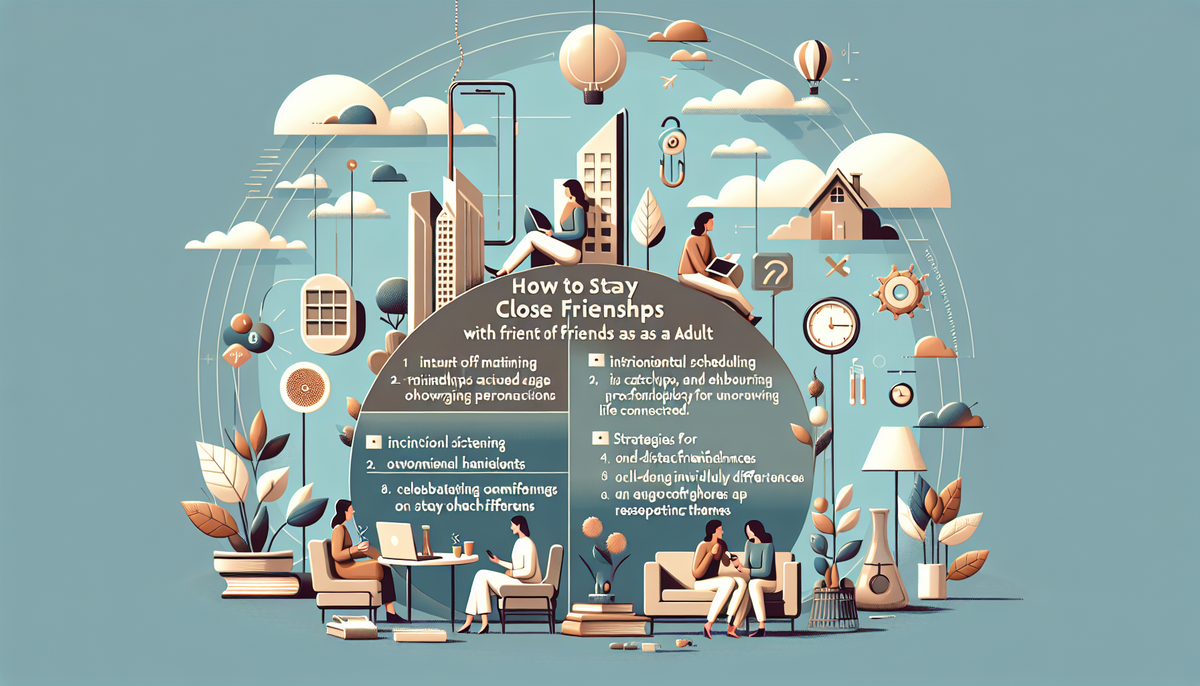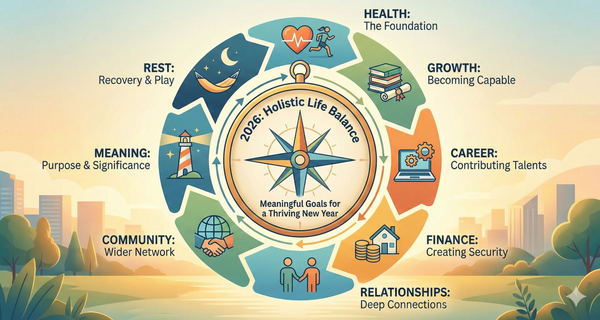How to Stay Close with Friends as an Adult

The Challenge of Adult Friendships
Remember when making friends was as simple as sharing a sandbox or sitting next to someone in class? Adulthood, with its complex web of careers, romantic relationships, and personal responsibilities, often leaves little room for the spontaneous connections that once defined our social lives. Maintaining deep, meaningful friendships becomes a challenge not because we care less, but because time and energy become finite resources. If you've ever felt a pang of guilt over an unreturned text or realized it's been months since you saw a close friend, you're not alone. This guide is designed to provide practical, SEO-optimized friendship tips to help you stay connected and nurture your adult friendships, because these bonds are more important than ever.
Intentionality is Key: Scheduling and Prioritizing
In adulthood, friendships don't thrive on spontaneity alone; they require conscious effort. The single most effective way to ensure you stay connected is to be intentional about making time for your friends. This means shifting your mindset from "we should catch up sometime" to "let's put something on the calendar."
Block Out Time in Your Calendar
Treat your friendships with the same importance as a work meeting or a dentist appointment. Schedule a weekly video call, a bi-weekly coffee date, or a monthly dinner. By putting it in your calendar, you are making a concrete commitment to both yourself and your friend, dramatically increasing the likelihood that you'll follow through.
Create Recurring Rituals
Recurring events are powerful because they eliminate the constant back-and-forth of scheduling. This could be a standing Friday night virtual game session, the first-Sunday-of-the-month brunch, or an annual weekend trip. These rituals become a reliable anchor for your friendship, providing a consistent touchpoint to look forward to.
Deepening Connections: Quality over Quantity
When you do manage to carve out time together, the quality of that interaction matters far more than the duration. A single, focused 30-minute conversation can be more valuable than hours spent together while distracted. The goal is to create moments of genuine connection that reinforce your bond.
Practice Active Listening
Put your phone away, make eye contact, and truly listen to what your friend is sharing. Ask follow-up questions and engage with their story. In a world full of distractions, giving someone your undivided attention is one of the most profound ways to show you care and want to stay connected.
Embrace Vulnerability
Surface-level conversations can only sustain a friendship for so long. Building a deep, lasting bond requires a degree of vulnerability. Share your own struggles and successes, and create a safe space for your friends to do the same. This reciprocal exchange builds trust and emotional intimacy, the bedrock of all strong adult friendships.
Celebrate the Small and Big Wins
Be the friend who remembers a big presentation or asks how a tough conversation went. Acknowledging and celebrating each other's milestones—and offering support during challenges—shows that you are invested in their life, not just a passive observer.
Adapting to Distance and Life Changes
Life is rarely static. Friends move away, get married, have children, or change careers. Successful adult friendships are those that can adapt to these inevitable shifts. It's crucial to find new ways to maintain your connection, even when the old methods are no longer possible.
Leverage Technology for Connection
While technology can be a source of distraction, it's also a powerful tool for bridging distance. Go beyond simple texting. Schedule regular video calls, start a private group chat for daily ridiculous memes, watch a movie simultaneously using a streaming party extension, or collaborate on a shared music playlist. These small, consistent interactions can make a long distance feel shorter.
Plan Future Visits
If you live far apart, having a future visit on the calendar can be a powerful motivator. The act of planning a trip together—even if it's months away—builds excitement and provides a concrete goal to look forward to, reinforcing the friendship's importance.
Acknowledge and Respect Differences
Understand that your friends' availability and priorities may change. A new parent might not be able to make a spontaneous happy hour, but they might love a quick visit during the baby's naptime. Being flexible and respectful of each other's current life stage is crucial for avoiding resentment and keeping the friendship healthy.
Conclusion
Nurturing adult friendships is an art that requires dedication, but it is one of the most rewarding investments you can make in your overall happiness and well-being. By being intentional, focusing on quality connections, and adapting to life's changes, you can keep your bonds strong and resilient for years to come. The most important of all friendship tips is to take the first step. Pick up your phone right now and send a message to a friend you've been meaning to catch up with. You'll be glad you did.




